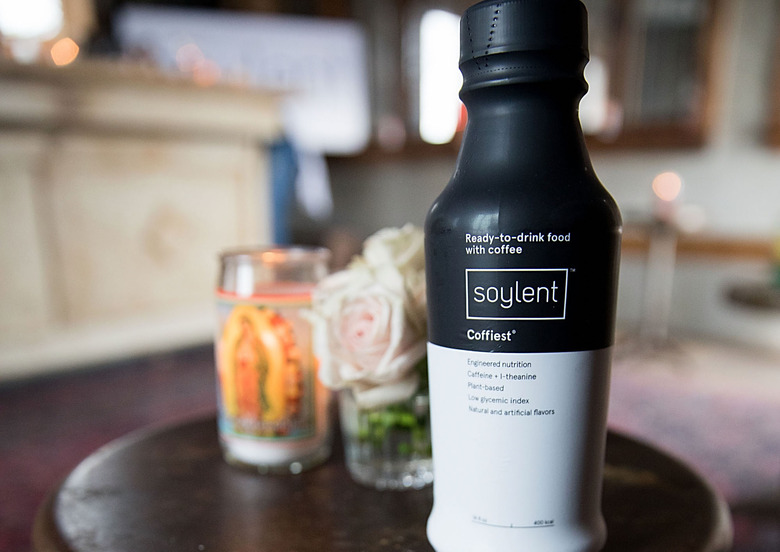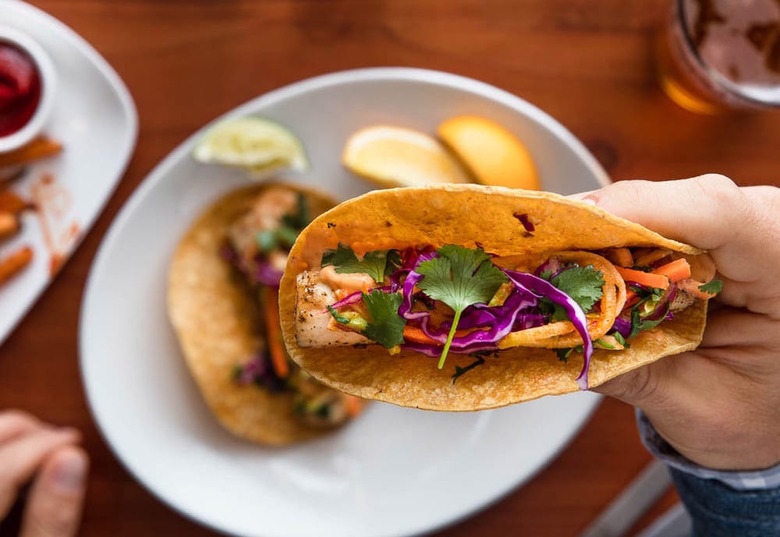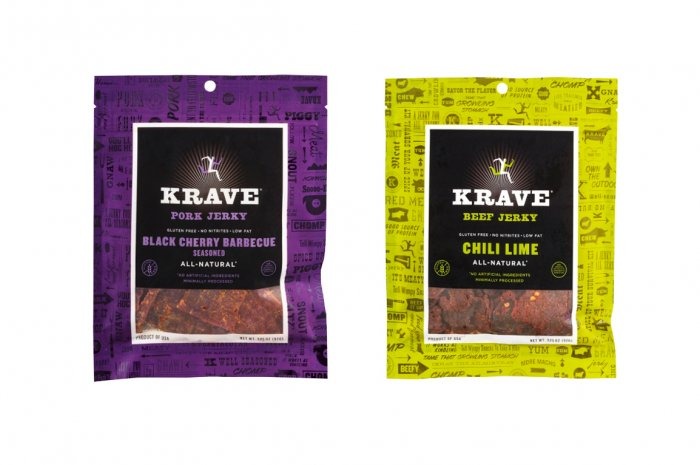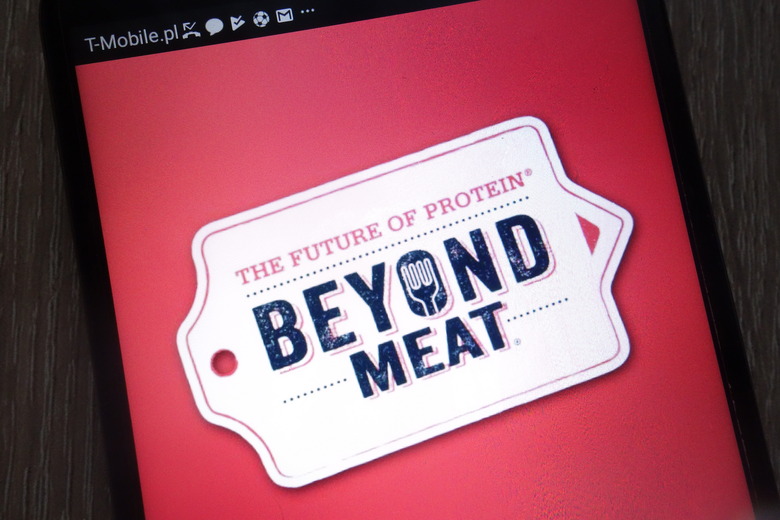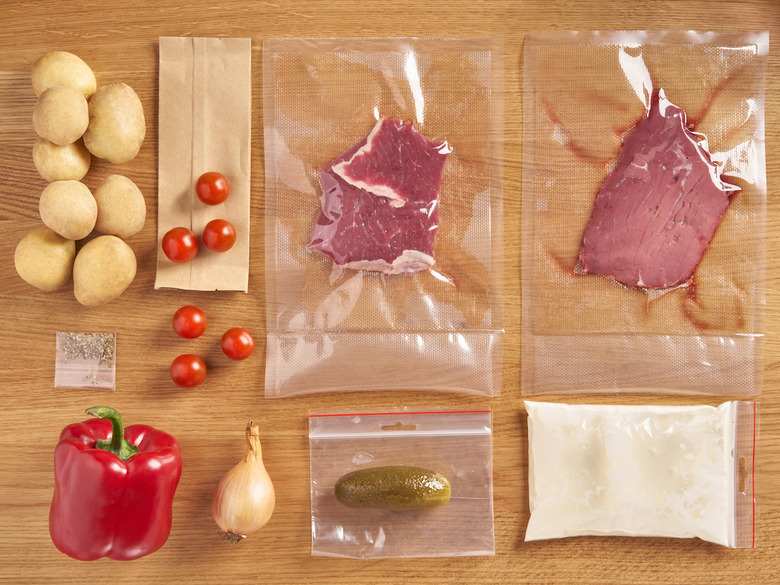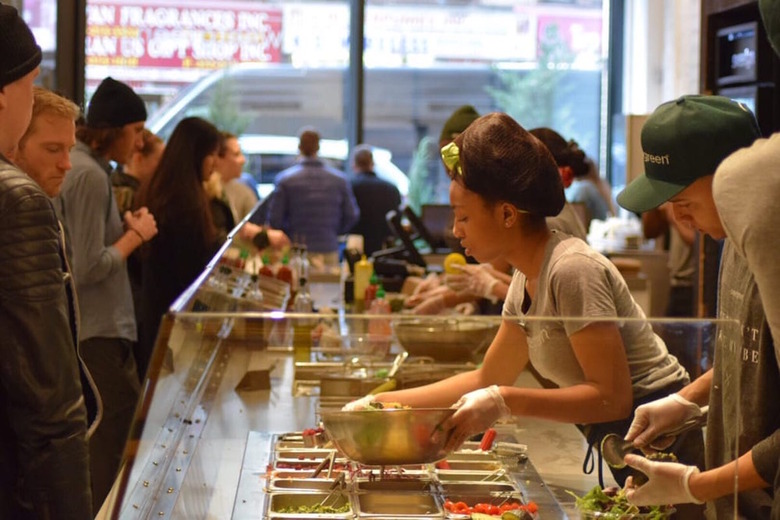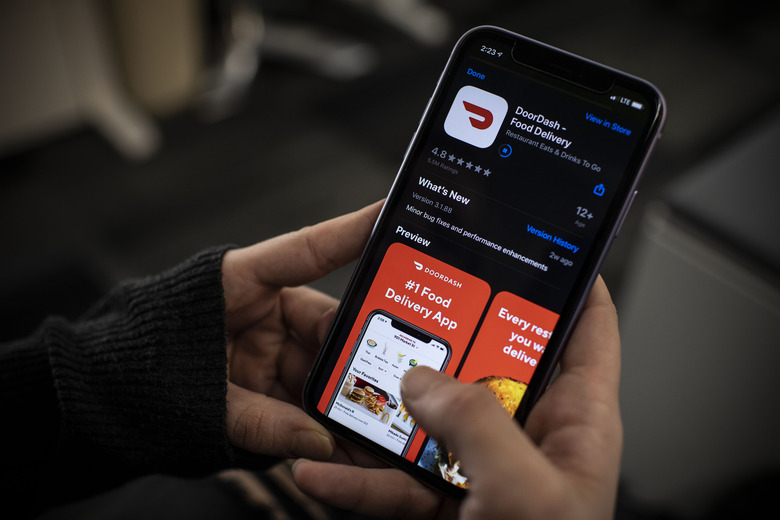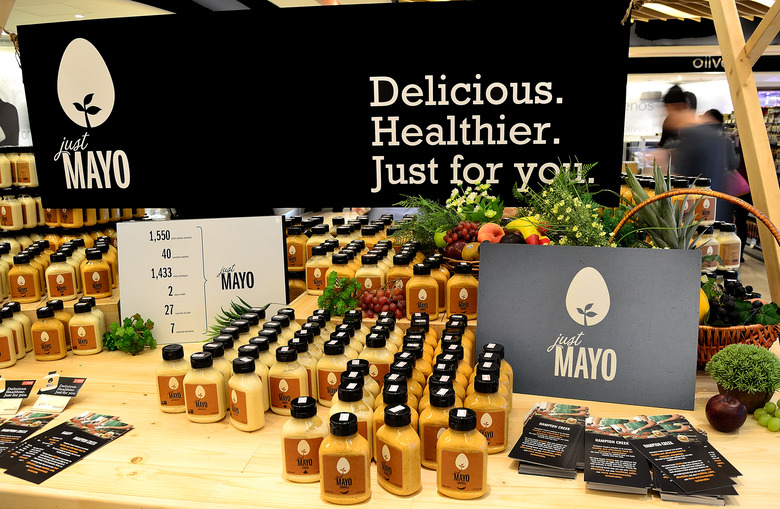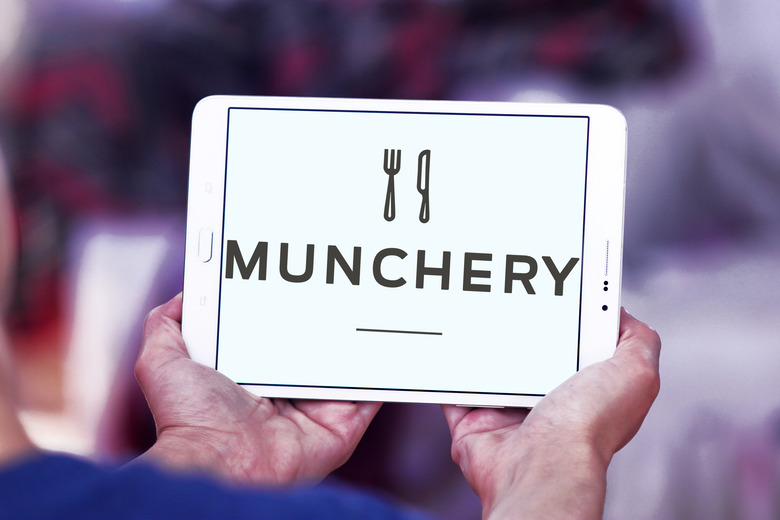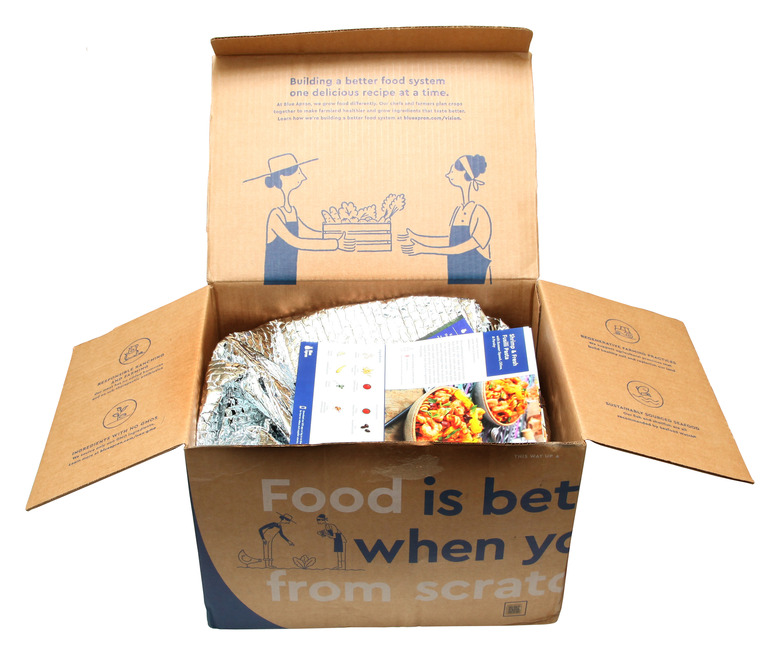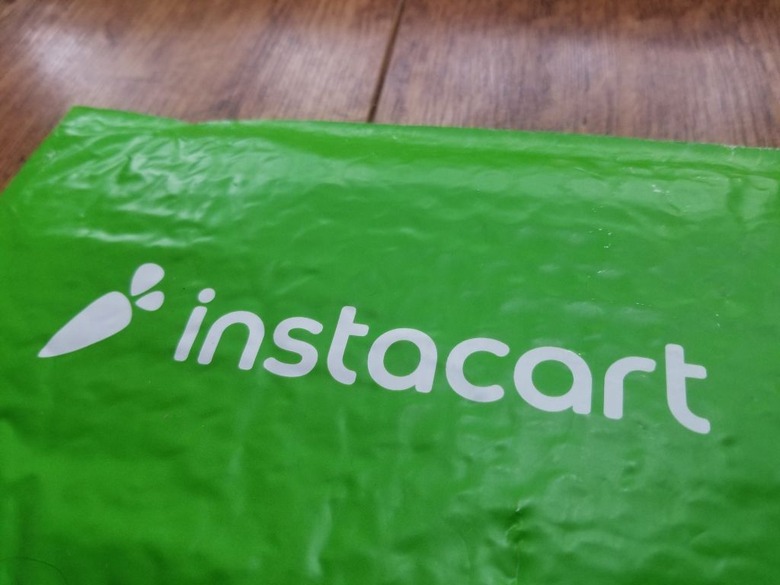The 12 Most Successful Food Startups Of The Decade
It's a great time to be a food startup. Big venture capital firms are pumping hundreds of millions of dollars into new ventures that are completely changing the way we think about and interact with food, and these 12 companies should definitely be on your radar.
#12 Soylent
Few food items have been getting more buzz lately than Soylent, "a simple, healthy, and affordable drink designed to efficiently serve your staple food needs" that earlier this year secured a $20 million investment led by VC firm Andreessen Horowitz. Developed by a busy entrepreneur who didn't want to think about food but also didn't want to sacrifice nutrition, Soylent distills food to its essentials, namely carbohydrates, fatty acids, fiber, protein, fiber, vitamins, and minerals. A day's nutrition (the mixture looks like a milkshake) can be prepared in three minutes, and it costs less than $10 per day. If there's a food of the future, this is it. The only problem with Soylent might be what it's called; anyone who saw the 1973 Charlton Heston starrer Soylent Green will remember that the miracle protein of that name on which the world is fed is revealed to have an unexpected source: human beings. "Soylent Green is people!" Heston cries near the end of the movie.
#11 Lyfe Kitchen
With locations in California, Colorado, Illinois, Nevada, Tennessee, New York City, and Texas, Palo Alto-based Lyfe Kitchen was founded in 2011 and has been quietly gaining steam (and investors) since then. Memphis-based Carlisle Group, a major Wendy's franchisee, bought a stake in August 2014, and they're hoping to grow the chain to 60 locations by next year. Breakfast is served until 11 a.m. daily, and items include quinoa buttermilk pancakes; a spinach and avocado frittata; and a Greek yogurt bowl with blueberries, pomegranate, chia seeds, and toasted almonds. Lunch items include barbecue chicken flatbread with grilled chicken sweet corn, caramelized onion, barbecue sauce, and mozzarella; mahi fish tacos with chayote slaw and cilantro and chipotle aïoli; a grass-fed beef burger with Cheddar; "unfried" chicken with roasted Brussels sprouts, butternut squash, and cashew cream sauce; roasted salmon with tomato and fennel; and a Thai red curry bowl with broccoli, eggplant, peppers, peas, wheat berries, and Thai basil. It all sounds healthy and delicious, right? But what sets this chain apart from all the other start-ups? Every single item on the menu, even the burger, consists of 600 calories or less. With a wide assortment of smoothies and beer and wine on tap, Lyfe Kitchen is a chain that's easy fall in love with.
#10 Krave Jerky
Jerky isn't something we give much thought to, but Krave is turning it into an artisanal food item. All-natural, whole muscle-cut, hand-sliced meat is marinated for 48 hours and then baked, resulting in a premium product. It's free of the usual jerky additives like nitrites and MSG, and the flavors are unlike any you've seen: black cherry barbecue pork; basil citrus and lemon garlic turkey; and pineapple orange, sweet chipotle, and chile lime beef jerky. They've also recently released Krave Artisanal, featuring small-batch flavors like sesame ginger and cabernet rosemary beef, honey peach pork, and chardonnay lime turkey. Investors took notice, and so did potential buyers: The company was snatched up by Hershey earlier this year for somewhere in the range of $200 to $300 million. Jerky may never be the same.
#9 Revolution Foods
School lunches are notoriously far from nourishing, but Revolution Foods is setting out to change that. This company creates more than a million healthy and fresh meals per week, serving foods that are minimally processed; have no high-fructose corn syrup, artificial flavors, or additives; and always contain fruits and vegetables. Revolution Foods is making sure that kids get proper nutrition at school (especially kids on free and reduced meal programs), which is a very good thing. Last year AOL co-founder Steve Case took notice, and invested $30 million in the company.
#8 Beyond Meat
For vegetarians, finding meat substitutes that actually look, taste, and feel like meat has always been a futile effort. Until now. Beyond Meat hails its creation as "meat from plants," and they mean it. Instead of putting vegetable protein in a mold and calling it a day (or a burger), they went looking for the same building blocks that meat contains — amino acids, lipids, fats, oils, water, and protein — and found them in plant-based sources. The result is uncannily meat-like, but Beyond Meat's goal goes beyond that: They want to improve human health, positively impact climate change, address global resource restraints, and advance animal welfare. Investors include Bill Gates and Twitter co-founder Biz Stone, and it recently closed a Series D funding round, its largest to date.
#7 Plated
Love cooking, but hate having to find recipes and spend money on pantry ingredients you'll only use once? Then Plated, which sends you a weekly box of pre-portioned fresh and seasonal ingredients for chef-designed recipes that you choose and customize, may be for you. Each dish comes with a full-color recipe card that walks you through the entire meal, and literally nothing is wasted; if you only end up using half the lemon you're sent, they'll tell you to squeeze the other half into a glass of water. Meats are antibiotic-free, seafood is sustainable, and produce is fresh. And if you're not home when your box arrives, it'll stay chilled in the box for up to 24 hours. The company recently closed a $35 Series B round from investors including Greycroft Partners.
#6 Sweetgreen
If you're thinking about visiting a chain restaurant for a quick grab-and-go lunch, you're most likely not thinking about picking up something nutritious. But that's all changing with the help of Sweetgreen, which serves healthy and delicious organic food sourced locally. Sustainability is the focus, from the food to the design, and menu items are prepared fresh, use in-season produce, and are sourced from reputable farmers. Plus, salads and grain bowls are completely customizable. There are now more than 30 locations on the Eastern Seaboard and in California. For all intents and purposes, if you're looking to eat healthily and cleanly, Sweetgreen is your new best friend, and with a $35 million round of funding recently closed, one might be opening near you very soon.
#5 DoorDash
DoorDash launched only two years ago, but has already expanded to eight markets across the country and recently raised $40 million in Series B funding from Kleiner Perkins and three other existing investors. The company partners with restaurants in each market, and its fleet of "dashers" delivers menu items to your door. As opposed to most other restaurant delivery startups, which tend to only deliver food from more expensive restaurants, DoorDash has partnered with fast food restaurants, too, including Taco Bell.
#4 Hampton Creek
Hampton Creek is perhaps best known for its egg-free condiment Just Mayo, which is a huge seller at Whole Foods Market and is working its way into major American grocery stores. But the company does a lot more than make vegan mayo (and cookies): They vigilantly research different species of plants, group them by category, and use them to create healthy food items that use as little land and water as possible. When it comes to creating low-impact foods, Hampton Creek knows that it's all about the data. Late last year the company closed its $90 million Series C round, which brings its total funding to $120 million. Whether the FDA's concern over their use of the term "mayo" will have any impact on their future remains to be seen, however.
#3 Munchery
Munchery is disrupting dinner in a big way by "combining fresh ingredients, culinary expertise, and smart operations to deliver meals with the quality of restaurant food, the ease of ordering in, and the affordability of home cooking." Local professional chefs devise and prepare an ever-changing roster of dishes that are delivered chilled and fresh with detailed reheating instructions. Munchery is currently up and running in San Francisco, Seattle, Los Angeles, and New York, with more cities on the horizon. All packaging is eco-friendly, and a meal is donated to somebody in need with every order. The company has raised about $30 million since its 2010 funding and is close to finalizing a round that could be worth as much as $85 million, which could put its valuation at roughly $300 million, according to Pymnts.com.
#2 Blue Apron
Blue Apron is a delivery company that provides all the ingredients you need to make three fresh, healthy meals per week. Delivery is free, and once you subscribe you can cancel any time before the weekly cutoff. All of Blue Apron's recipes are designed to be prepared in 35 minutes or less and contain between 500 and 700 calories for a well-balanced meal (they even have a vegetarian plan). Customers are provided with the ingredients to create dishes like pulled chicken sliders with homemade pickles and Mexican-style corn, grilled shrimp cocktail with asparagus and eggplant, and steak and summer squash kebobs with blue cheese potato salad. It's a crowded field, but Blue Apron has emerged as the leader; in June, it landed a $135 million investment led by Fidelity, which gave the company a valuation of about $2 billion.
#1 Instacart
From big cities to small towns across the country, Instacart is making grocery shopping a whole lot easier. The site connects you with personal shoppers in your area who take your grocery list, go shopping for you at your local supermarket (including Costco and Whole Foods), and deliver your order to your door within a few hours. It's that easy — and revolutionary. The company now has about 4,000 personal shoppers (independent contractors), and charges $3.99 for two-hour delivery, $5.99 for one-hour delivery if users spend $35 or more, or a $99 per year membership. Revenue jumped 10 times in 2014 and doubled in the fourth quarter, according to CNBC, and in the past year it's doubled its full-time employee base to 100. It closed a $220 million funding round in January, raising the new financing at a $2 billion valuation.

